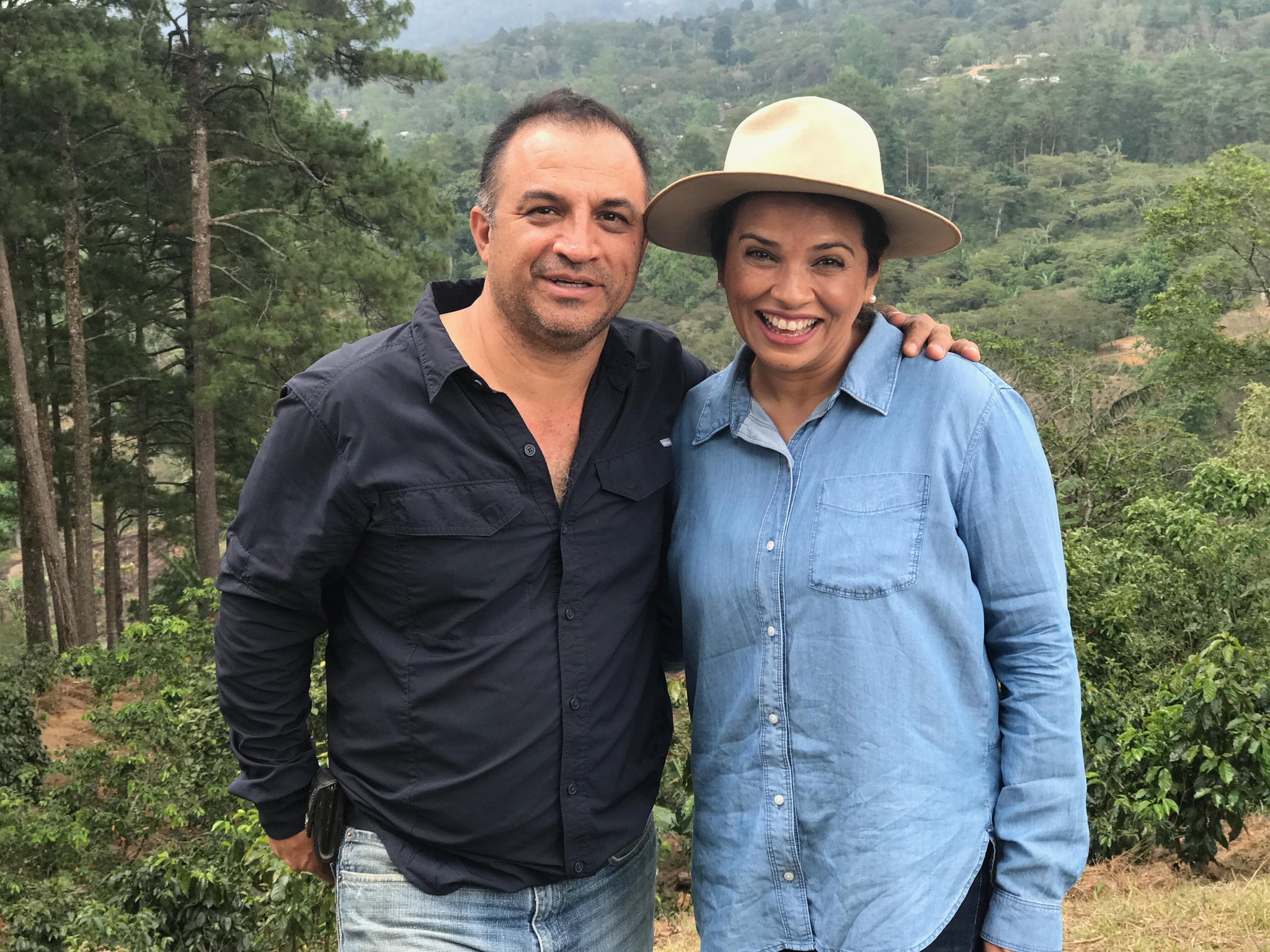
CABALLERO / HONDURAS (El Pantanal)
Caballero / Honduras
Flavor profile:
Fruity flavors of apple and prune with a sweetness like almond. Soft on the palate.
Apple, Prune, Almond, Soft mouthfeel.
Country of Origin: Honduras
Region: Marcala > La Paz > Chinacla
Producer: Marysabel Caballero & Moises Herrera
Farm: El Pantanal
Variety: Catuai
Processing method: Washed
Elevation: 1550 masl
Harvest: 2023
The coffee produced by Marisabel and Moises, a married couple well known for Fuglen, is carefully managed from cultivation to harvesting and processing. As a result, the coffee has a vivid fruitiness. In addition, their coffee is characterized by a clean and timeless balance.
The fruity flavor of apples and prunes spreads, followed by the gentle sweetness of almonds. This coffee has a gentle tone and a soft mouthfeel. 
We started selling coffee from Marisabel and Moises in 2017.
The year before, they had stopped by their roasting facility before it moved to Noborito, and although we were not yet selling their coffee at the time, they kindly accepted our invitation to tour their farm in 2017.
We have been handling coffee from the El Pantanal plot every year since 2017, but we were unable to handle it in 2021 and 2022 because we purchased coffee from other plots. However, we will be handling it again for the first time in about two years, and it feels like a nostalgic taste has returned to us. Of course, the quality is high, needless to say.
 To the left of the white grove in the center of the photo is El Pantanal. To the right of that is the Amazonas area where Java seeds are cultivated.
To the left of the white grove in the center of the photo is El Pantanal. To the right of that is the Amazonas area where Java seeds are cultivated."Pantanal" means swampy land, which can become waterlogged and muddy, especially in winter. At first it was considered unsuitable for growing coffee, but today it produces excellent coffee.
The Caballero family cares about the environment of their farm and actively works to maintain a sustainable and healthy farm. They especially focus on the health of the soil of their farm, creating an environment in which coffee can grow. As fertilizer, they mainly use organic compost made from a mixture of cow and bird droppings and coffee pulp, and also incorporate mineral compost.
As the environment for growing coffee improves, the quality of the coffee itself also improves.

Not only are the coffee growing conditions good, but we also continue to improve the wet mill process.
Previously, after the fermentation process, the parchment was washed in a washing channel commonly seen in Ethiopia and other countries, and the beans were then sorted by weight. Currently, this method is no longer used, and the parchment is washed using the machine shown in the photo. This has allowed us to save a considerable amount of water.
In coffee processing, the wastewater used in the process pollutes the surrounding environment, so it must not be discharged directly, but must be filtered in stages before being discharged. I don't know how many farms have taken thorough measures regarding wastewater, but here we try to discharge as little wastewater as possible, and we also thoroughly filter the wastewater.
So, if you don't sort by weight, how do you remove the floaters (light, unripe beans)?
This is made possible by adding two more steps.

This machine separates the products by weight.

In addition, this Japanese-made machine identifies them by color.
These require huge investment costs for machinery and the process itself takes time, but they allow for more accurate sorting and cut off more wastewater, making them an ideal investment for delicious coffee and reducing environmental impact. And the investment funds come from the money paid for drinking this coffee.
Tasting videos now available on YouTube 🎬
Product page👇
Caballero / Honduras 🇭🇳



